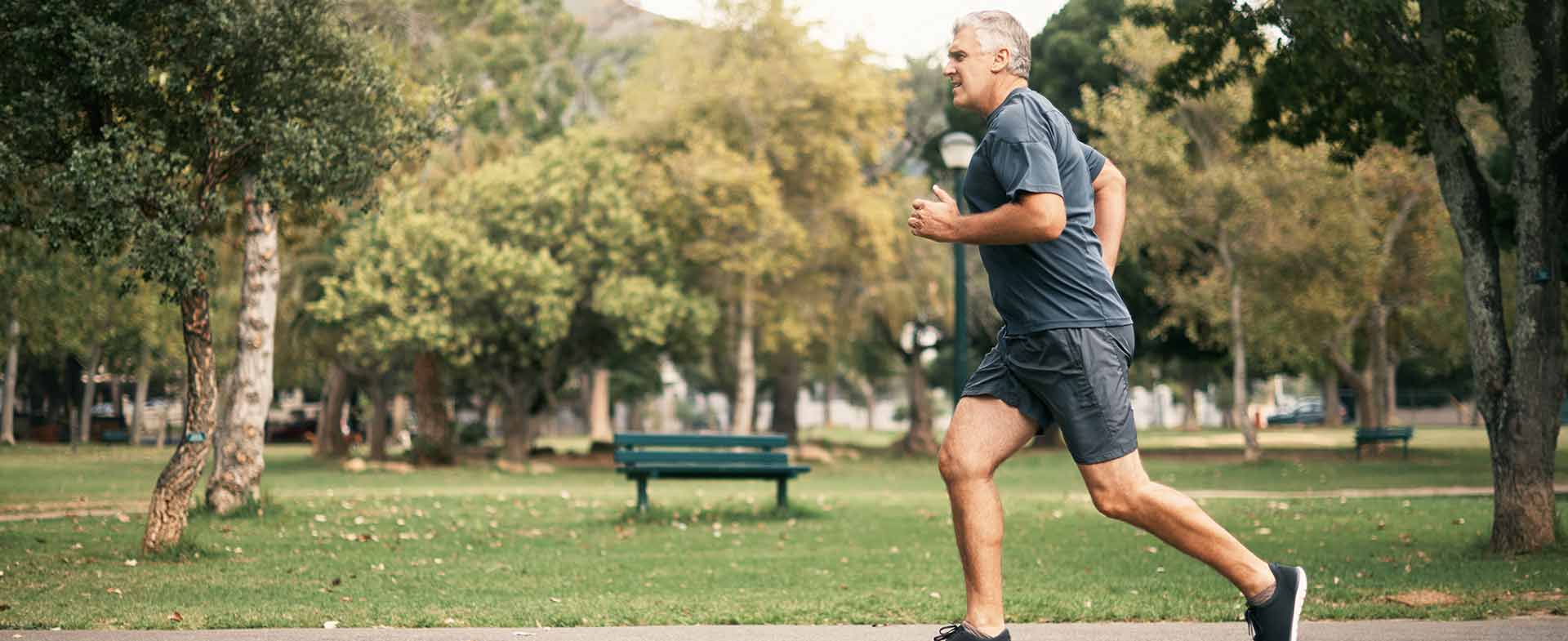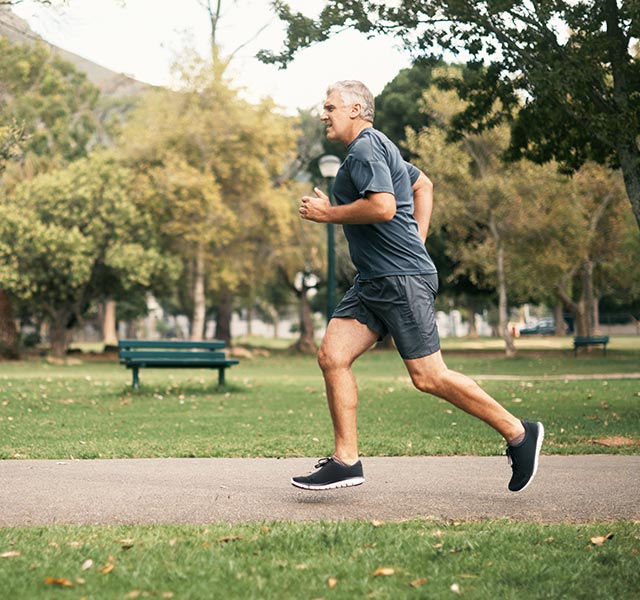Staying fit and active is important for everyone, but if you have Parkinson’s disease, exercise should be a key part of your daily routine to help maintain mobility and balance.
Parkinson’s disease (PD) is a brain disorder caused by a lack of dopamine, a chemical that helps control movement and coordination. Without enough dopamine in the brain, over time, individuals with PD lose their ability to control body movement.
How Does Exercise Help My Parkinson’s Disease?
According to the National Parkinson Foundation, exercise benefits people with PD in two ways: symptom management and slowing disease progression.
“By exercising often, areas such as balance, tremor, flexibility, grip strength and motor coordination can improve. Doctors believe that exercise improves your mobility and balance, which can slow the progression of Parkinson’s disease,” explains Ellen Air, M.D., a neurosurgeon at Henry Ford Health.
Exercises that include flexibility, aerobic activity and strength training offer the best results. Doctors suggest 2-2.5 hours of exercise per week with each exercise lasting at least 20 minutes. Here are a few tips for getting started:
Exercises Or Hobbies To Try If You Have Parkinson’s Disease
- Biking
- Swimming
- Yoga
- Running
- Tai Chi
- Pilates
- Gardening
If you have a difficult time getting out of the house to do physical activity, options such as exercise videos and home equipment, and activities such as yoga may be a good solution.
Exercises To Avoid If You Have Parkinson’s Disease
These exercises do not challenge the motor functions as much as other activities:
- Heavy weightlifting
- Riding a stationary bike
- Walking at a slow speed on the treadmill
How Can I Get the Most Out Of Exercising?
Keep a consistent schedule. The National Parkinson Foundation has found that people who exercise consistently have greater mobility and balance than those who participate in short-term programs. You should also:
- Try a variety of different activities throughout the week.
- Vary the intensity of your workouts.
- Incorporate strength and balance exercises.
How Can I Exercise Safely?
Safety is important in any new exercise program. However, this is especially true for people with Parkinson’s disease, given that balance and motor function may not be at their peak, according to Dr. Air.

Movement Disorders At Henry Ford
Prevent injury by remembering to:
- Always begin your exercises with a warm-up to prepare your body for the activity.
- Wear comfortable shoes that help maintain balance.
- Use the proper safety equipment, such as a helmet when biking.
- Follow proper posture and form in exercises such as yoga, because if the body is out of alignment, it can do more harm than good.
When you’re exercising, it’s also important to know your personal limits:
- Recognize your body’s signs of fatigue and exhaustion.
- If something causes you pain or discomfort, do not continue that form of exercise. Find a different activity that works the same muscles and doesn’t risk injury.
- If you feel like you overexerted yourself one day, take a break the next day to let your muscles
For people with Parkinson’s disease, the cool-down after exercising is also imperative. This helps your heart rate decrease slowly, while keeping your muscles loose.
“Exercise will not stop Parkinson’s disease. However, keeping yourself moving can help you manage symptoms and slow the progression of the disease – while also giving you the added health benefits that anybody can get with exercise, like weight control, better cardiovascular health, improved mood and more energy,” says Dr. Air.
Dr. Ellen Air is a neurosurgeon who sees patients at Henry Ford Hospital in Detroit and Henry Ford West Bloomfield Hospital.



